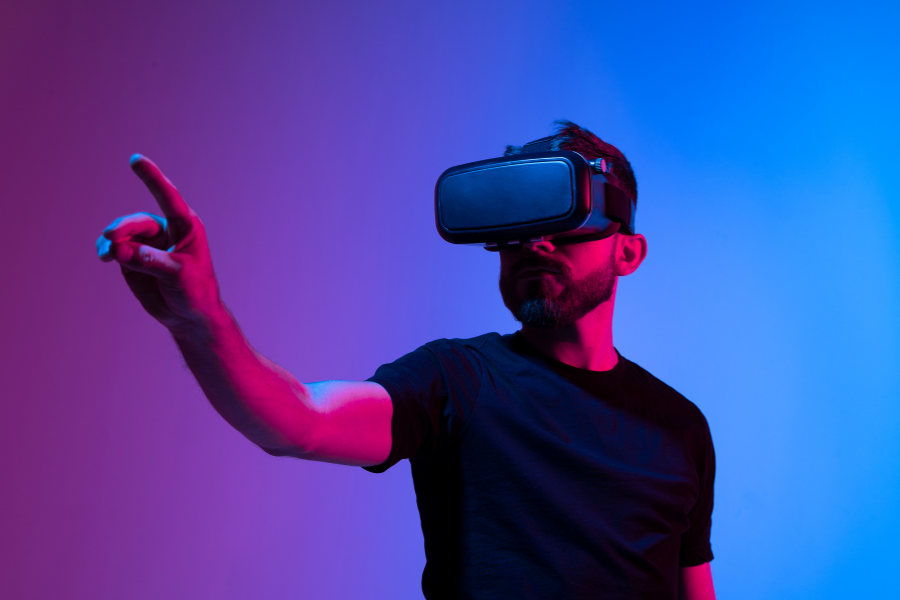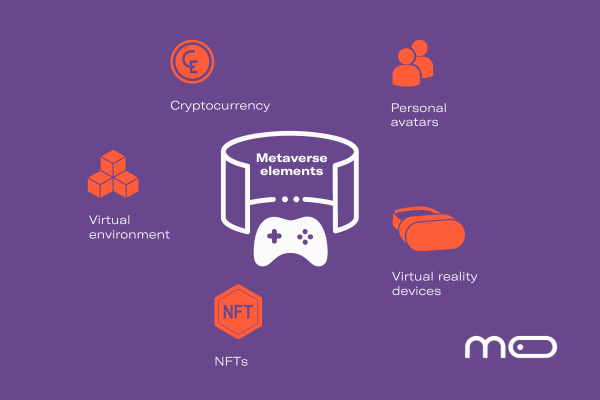Introduction
The concept of the metaverse has transcended mere science fiction speculation to become a tangible digital landscape where interaction, work, and socialization converge. This evolution redefines our experiences, envisioning a future where applications are a fundamental part of this expanding digital universe.
Let’s delve into what apps can bring to this world of virtual connection.
Exploring metaverse apps
Metaverse apps are the cornerstone of this new digital reality, offering users a window into three-dimensional worlds where they can collaborate, create, and connect. Beyond simple tools, these apps encapsulate the essence of the metaverse experience, offering:
Dynamic interconection:
Metaverse apps intertwine to provide users with a seamless and continuous experience, breaking down barriers between platforms.
Innovative personalization:
Users can mold their avatars and virtual environments, infusing their identity into every interaction.
Synchronous Collaboration:
Real-time collaboration becomes the norm, allowing users to work together and share experiences seamlessly.
Examples of metaverse apps
The metaverse landscape is already populated by a variety of applications that embody its limitless potential. Decentraland stands out as one of the most prominent platforms, allowing users to acquire, trade, and build on virtual lands, creating a diverse and thriving digital marketplace. Going beyond a mere game, Roblox serves as a canvas for creativity, where users can bring their visions to life and share unique experiences. Lastly, Horizon Workrooms (by Meta) redefines the way we work, offering immersive virtual meetings in a 3D environment that transcends the limitations of the physical world.
Emerging functionalities in metaverse apps
Although the full-fledged metaverse experience is primarily confined to virtual reality (VR) hardware sets due to their immersive capabilities, Sensor Tower data reveals a notable increase in apps adding “metaverse” to their keywords in app stores. Hence, these experiences are also increasingly assimilated into mobile app development.
Metaverse app design continues to evolve, offering a diverse range of functionalities that redefine the digital experience:
Dynamic virtual commerce:
From digital goods to virtual assets, commerce in the metaverse opens up new economic and creative opportunities.
Immersive education:
Las clases y talleres virtuales ofrecen una educación envolvente y accesible para personas de todo el mundo, redefiniendo los límites del aprendizaje.
Expanded socialization:
Desde eventos culturales hasta reuniones sociales, el metaverso se convierte en un escenario para la interacción humana en todas sus formas, superando las limitaciones del espacio físico.
Across all categories, gaming takes the lead in fully immersing users in virtual experiences. Standouts include Pokémon GO, the global phenomenon for capturing and training Pokémon in the real world, and Ingress, a game that divides the world into two factions competing for control of energy and ideal for exploring the city and its monuments. Zombies Run returns to the tried-and-true theme of a zombie-infested world, urging players to run, while Warhammer 40,000: Freeblade, inspired by the famous Games Workshop brand, offers a third-person shooter game using augmented reality.
In general, many games have adopted metagaming elements in their apps. Features such as avatars, virtual worlds, or virtual economies are introduced into the main gameplay.
Wrapping up
The metaverse represents a vast canvas of opportunities for both businesses and users alike. With tech giants like Meta (formerly Facebook) leading the way, the future of the metaverse promises deeper integration into our daily lives. In this ever-evolving digital landscape, mobile apps emerge as the fundamental pillars supporting this new era of limitless interaction and creativity.





